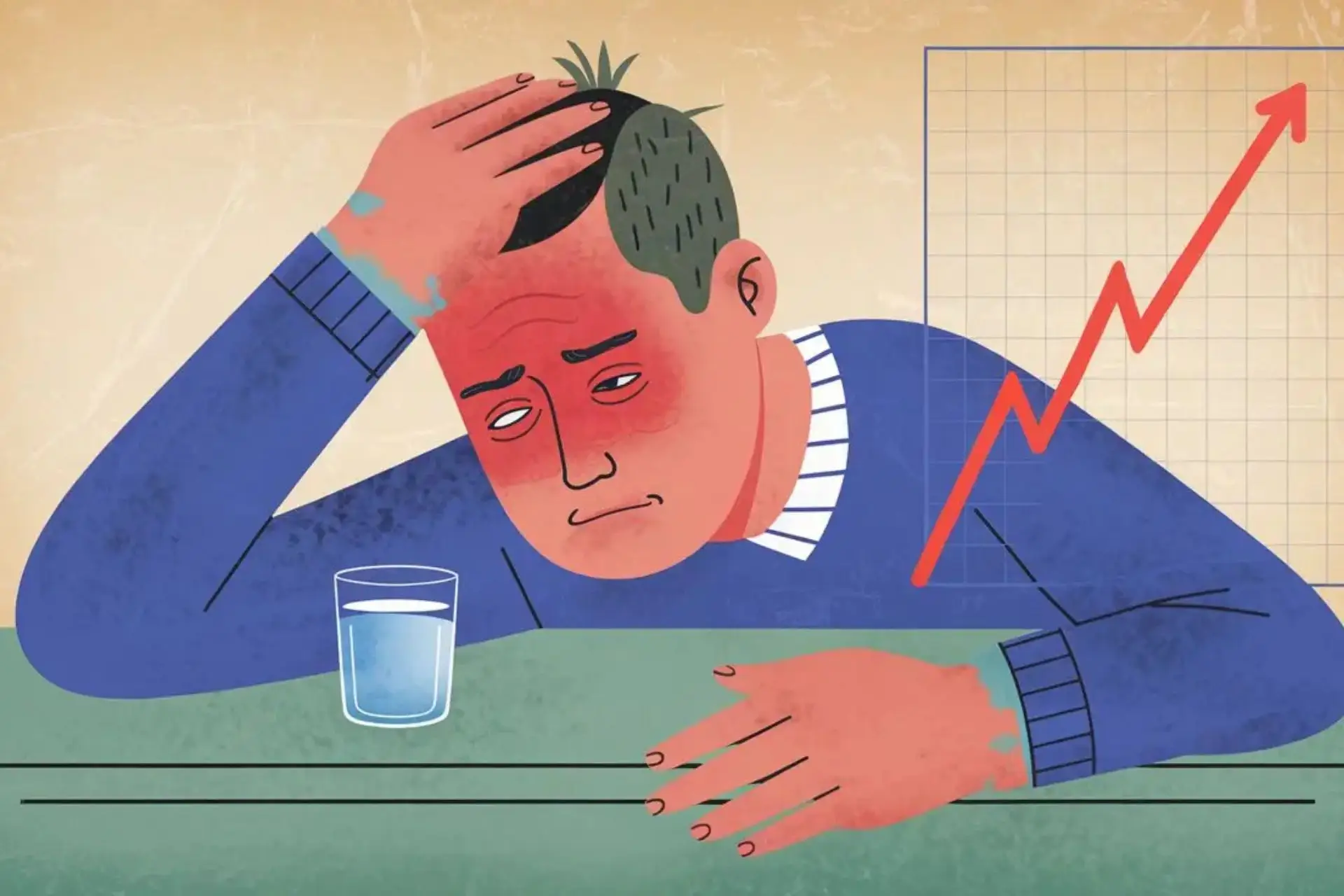Introduction
In today’s busy world, it’s easy to forget the importance of drinking enough water. We often hear that staying hydrated is essential for overall health, but could dehydration influence High blood pressure? High blood pressure, also known as hypertension, affects millions of people worldwide and can lead to serious health issues if left unmanaged. In this article, we’ll explore whether dehydration is a hidden contributor to high blood pressure and how to protect your heart.

What is Dehydration?
Dehydration occurs when the body loses more fluids than it takes in, leading to an imbalance that affects various bodily functions. Common causes of dehydration include:
- Inadequate water intake
- Excessive sweating (especially in hot weather or during exercise)
- Illnesses causing vomiting or diarrhea
- Certain medications (like diuretics)
When dehydrated, the body’s normal functions are disrupted, potentially impacting heart health.
Understanding Blood Pressure

Blood pressure is the force exerted by circulating blood on the walls of blood vessels. It’s measured in two numbers:
- Systolic Pressure (top number): The pressure when the heart beats
- Diastolic Pressure (bottom number): The pressure when the heart is at rest
Normal blood pressure is around 120/80 mmHg. When blood pressure consistently stays above this range, it’s classified as hypertension, which can lead to cardiovascular problems over time.
The Connection Between Dehydration and Blood Pressure
Research suggests that dehydration may indeed play a role in raising blood pressure. Here’s how:
1. Reduced Blood Volume
Dehydration leads to a lower blood volume, causing the blood vessels to constrict. This narrowing of blood vessels can increase blood pressure as the body tries to maintain circulation.
2. Increased Sodium Retention
When dehydrated, the kidneys retain more sodium to conserve water. High sodium levels in the blood can lead to increased blood pressure, as sodium affects how much water is held in the bloodstream.
3. Hormonal Response
Dehydration triggers the release of vasopressin, a hormone that causes blood vessels to constrict, which can raise blood pressure. Additionally, the stress hormone cortisol may increase during dehydration, contributing to a temporary rise in blood pressure.
Signs of Dehydration-Related High Blood Pressure
It’s important to recognize symptoms that may indicate dehydration and potentially high blood pressure:
1. Persistent thirst
2. Dry mouth and lips
3. Dark yellow urine
4. Fatigue and dizziness
5. Headache or blurred vision
If these symptoms are present, especially during hot weather or after strenuous exercise, it could signal a need to rehydrate.
Who Is at Risk?
Certain groups are more susceptible to dehydration-related high blood pressure:
- Older Adults: As we age, our sense of thirst diminishes, making it easier to become dehydrated.
- Athletes and Active Individuals: People who engage in intense exercise may lose significant fluids through sweat.
- People Taking Diuretics: Certain medications can increase urine output, which can lead to dehydration if fluid intake isn’t adjusted accordingly.
If you belong to any of these groups, it’s crucial to pay attention to hydration, particularly if you’re managing high blood pressure.
How Much Water should You Drink?

While individual hydration needs vary, a general guideline is to drink about 8 glasses (2 liters) of water per day. However, needs increase with factors like physical activity, hot climates, and overall health. Listen to your body’s signals, such as thirst and urine color, to determine if you’re adequately hydrated.
Tips for staying Hydrated and Managing Blood Pressure
- Carry a Water Bottle: Keeping water within reach encourages regular sips throughout the day.
- Eat Water-Rich Foods: Foods like cucumbers, watermelons, oranges, and leafy greens contribute to hydration.
- Set Reminders: Alarms or smartphone reminders can prompt you to drink water regularly.
- Limit Alcohol and Caffeine: Both are diuretics and can lead to fluid loss.
- Monitor Salt Intake: High salt intake may compound the effects of dehydration on blood pressure.
Other Factors Affecting Blood Pressure
While dehydration is one factor, other elements also play a role in blood pressure regulation, including:
- Diet: High salt, sugar, and fat intake can elevate blood pressure.
- Exercise: Regular physical activity helps keep blood pressure within a healthy range.
- Stress: Chronic stress can lead to higher blood pressure levels.
- Weight: Maintaining a healthy weight is essential for heart health.
FAQs
While drinking water alone may not directly lower blood pressure, staying hydrated supports cardiovascular health and may prevent dehydration-related spikes in blood pressure.
Yes, dehydration can lead to an imbalance of electrolytes, which may cause irregular heartbeats or palpitations
Focus on drinking water throughout the day, eating water-rich foods, and limiting caffeine and alcohol intake. Speak with a healthcare provider for personalized advice.
Conclusion
While dehydration alone may not be the primary cause of chronic high blood pressure, it can certainly contribute to temporary increases in blood pressure due to reduced blood volume, increased sodium retention, and hormonal changes. Staying hydrated is a simple yet effective way to support heart health and prevent unnecessary blood pressure spikes. If you’re managing hypertension, prioritize hydration alongside other lifestyle changes to keep your blood pressure within a healthy range.
